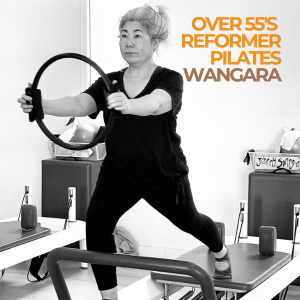Eating well is one of the best ways to stay healthy and active as we get older. Indeed, for many seniors, a low-carb diet can be a simple yet powerful way to boost their energy, improve their health, and make daily life a lot more enjoyable.
However, some are reluctant to embrace this lifestyle choice as they believe it involves giving up all their favourite foods. But this is not necessarily the case. It’s actually more about focusing on choosing meals that support your body’s needs as you get older, to help you live your best life.
If you have been thinking about making some changes to your diet, it is worth reading on till the end. In this post, we’ll take a closer look at low-carb eating, why it works so well for older adults and how you can make the switch to it.
Why low-carb eating suits older adults
As we get older, our metabolism naturally starts to slow down. This means our bodies need fewer calories. However, they still require plenty of nutrients.
A low-carb diet for older adults focuses on nutrient-rich foods without the extra sugars and processed carbs that can cause health issues. There are several benefits to doing this, including:
1. It supports heart health
The health of their heart is a top priority for many seniors. A low-carb diet, when done right, can help you maintain healthy cholesterol levels and experience reduced inflammation.
Eating more foods like leafy greens, fatty fish, nuts, and olive oil will give your heart the nutrients it needs. In addition, pairing low-carb eating with regular gentle exercise, such as walking or swimming, can also make a massive difference.
2. Managing blood sugar in later life
Managing blood sugar is an everyday concern for many older Australians. Even an unwitting slip of eating too many refined carbs can lead to spikes and crashes in energy, which can make you feel tired or irritable.
Low glycaemic index foods, such as vegetables, nuts, seeds, and lean proteins, release energy slowly. So, it is worth incorporating plenty of them into your diet as it will help you feel steady throughout the day.
For seniors with type 2 diabetes, this approach can also help reduce the need for medication in some cases. However, you should always check with your doctor before making changes.
3. Better energy and mental clarity
One of the surprising benefits of reducing carbs is the boost it can provide you with mental clarity. Indeed, many seniors who switch to a low-carb lifestyle often report better focus and memory.
It is important to note that healthy aging through diet is not just about the body. Your brain needs the right nutrients to stay sharp, too. That is why it is important to eat foods such as eggs, salmon, avocado, and leafy greens, as they are rich in healthy fats and vitamins that support brain health.
4. Better blood sugar control
Another big benefit of low-carb eating is that it provides seniors with better blood sugar control. This can be particularly handy for those living with type 2 diabetes or pre-diabetes, as reducing carbs can help keep blood sugar levels steady.
In addition, this can also improve your energy levels and reduce the risk of suffering from long-term health complications.
5. Maintains a healthier weight
If you are carrying extra weight, it can put significant stress on your joints and heart. However, eating healthier foods via a lower-carb approach can help you manage your weight in a much better way.
Getting Started
If you want to make the switch to low-carb eating, a natural concern you might have is that you will need to spend a lot of time in the kitchen.
However, one good option is to sign up for a home delivery service, such as premade keto meals from Bondi Meal Prep.
The great thing about such a service is that they offer an excellent range of delicious and nutritious meals which are delivered to your door. As all you need to do is heat them up, you avoid the fuss of shopping and cooking and have minimal washing up.
Low-carb meal ideas for retirees
If you would rather cook for yourself, the good news is that you do not have to eat bland or boring meals to keep your carb intake low.
There are plenty of low-carb meals you can make, including these options. It is a good idea to choose meals that are easy to prepare, can be cooked in bulk and frozen in different portions.
If you do this, you will always have something to call on if you are pressed for time and not have to resort to high-carb fast food.
Summing up
Low-carb eating for seniors can be a very effective way to maintain a good level of health as you age.
By focusing on fresh, whole foods, you can meet your nutritional needs without the excess carbs that cause problems over time.
If you want to give it a try, it is worth starting small. Perhaps swap one or two meals a week for low-carb options and see how you feel.
At the end of the day, eating well is one of the most powerful things seniors can do, especially if you combine it with exercise and plenty of sleep.
It doesn’t matter if you cook at home or use convenient meal options. The key is to choose foods that make you feel strong, clear-headed, and ready to enjoy life.















